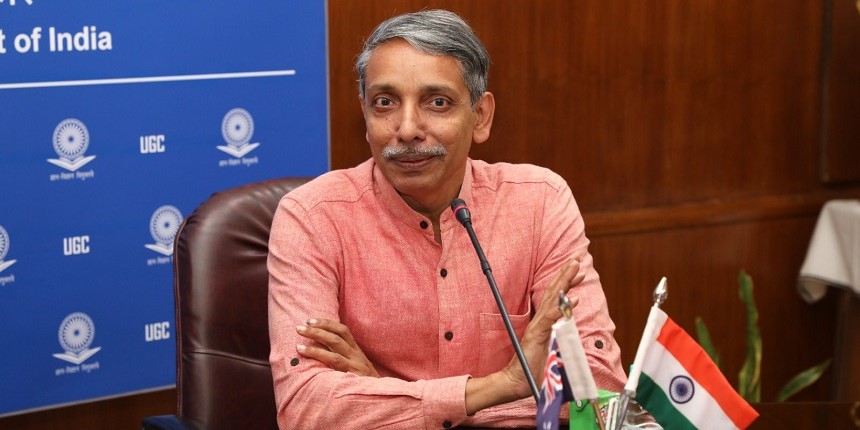Academic Bank of Credits: Over 2 crore students registered so far, says UGC chairman
R. Radhika | October 26, 2023 | 01:59 PM IST | 3 mins read
ABC Academic Bank of Credits: UGC chairman M Jagadesh Kumar said all students have to register and that 200 universities have adopted the four-year UG programme.

NEW DELHI: University Grants Commission chairman, M Jagadesh Kumar announced on Thursday that more than two crore students across the country have registered on the Academic Bank of Credits platform.
Addressing the western zone vice chancellor’s conference at the Maharaja Sayajirao University Baroda, Gujarat, Kumar spoke on the progress made in implementing reforms introduced by the UGC. To develop a road map for the effective implementation of significant initiatives, UGC has constituted five zonal committees with vice chancellors of central universities, state universities, private universities, and deemed to be universities as members.
“In the last couple of years, UGC has introduced several reforms. Today, more than two crore students have registered on the ABC platform but it is not enough as it is important that all the students are registered on the platform and you upload all the credentials and credits certificates of the students on the ABC platform,” he said addressing the vice chancellors.
Academic Bank of Credits, or ABC, a digital repository of credit records of each student, was introduced as a part of the National Education Policy (NEP 2020). The ABC Academic Bank of Credits allows students to seamlessly access their scores and facilitate transition from a university or a college to other institutions. By June, the UGC had recorded one crore registrations on the ABC platform. From 2023, a unique ABC ID has been made mandatory for all students to get admission in universities across the country.
NEP: 200 universities adopt FYUP
He also announced that nearly 200 universities have introduced the four-year undergraduate programme along with the internship component. “One of the biggest reforms we have introduced in independent India is the four year undergraduate programme. I would like to inform you that nearly 200 universities have already introduced the four year programme and we have made internship mandatory part of the four year programme,” Kumar said.
Kumar further said that the reforms introduced under NEP are not just for 4.1 crore students who are part of the formal education system but also for those who are not part of it. “Nearly 65% of the Indians live in the rural areas and 50% of India's population is below the age of 25 years. This means that a large number of students are living in rural areas. We need to ensure that students living in rural areas also have access to multiple academic areas.”
SOP for NEP 2020 implementation
Union education minister Dharmendra Pradhan, present at the inaugural session of the conference, lauded the effort of western zone, especially Gujarat, in leading the implementation process of NEP 2020.
Congratulating the chief minister of Gujarat, Bhupendrabhai Patel and MS University on organising the conference, the Pradhan said that more than 65 lakh students that study in the states of Gujarat, Maharashtra, Goa and other western states are under the central government educational institutions. The students in this zone constitute 15% of the total 4 crore students that will benefit from NEP, Pradhan said.
The minister also launched the standard operating procedure (SOP) for the implementation of NEP 2020 at the event. The SOP booklet will be a guiding document for higher educational institutions to implement the reforms suggested under the NEP in the next 10 years. “ I congratulate the Gujarat Government for creating a roadmap for the 10-year plan to implement NEP 2020 in the state,” Pradhan said.
Follow us for the latest education news on colleges and universities, admission, courses, exams, research, education policies, study abroad and more..
To get in touch, write to us at news@careers360.com.